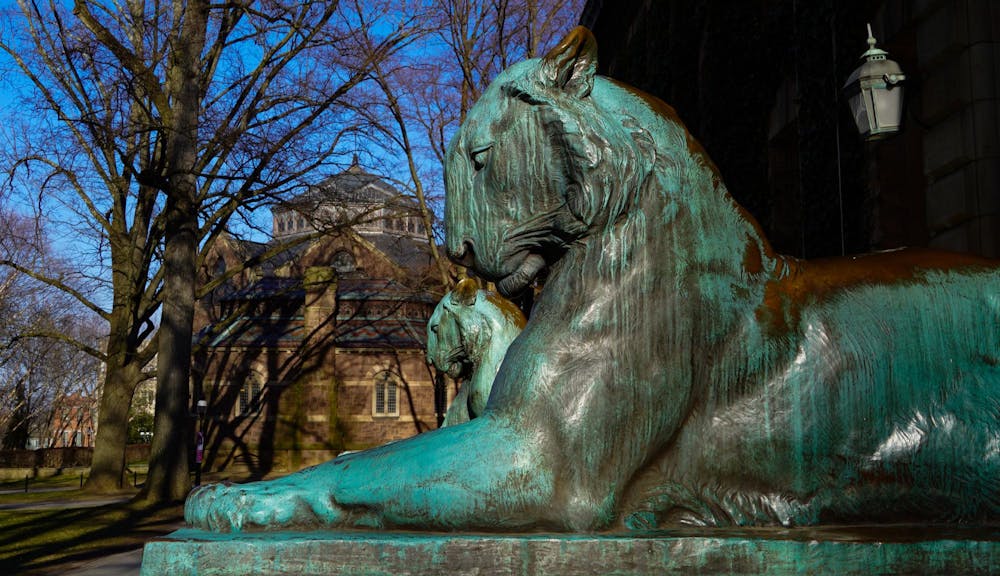This year, 27 seniors declared their candidacy for Young Alumni Trustee (YAT). The high number of candidates is hardly a surprise: As members of the 40-person board of trustees, Young Alumni Trustees have significant influence over the University’s governance, budget, and $34 billion dollar endowment. There is no doubt that YAT is the most powerful position that an undergraduate can run for, making it no surprise that YAT attracts some of the best talent from across the Class of 2024 to run.
Despite the interest from candidates, only 22 percent of students voted in last year’s election, though this was an increase from the year before. This stands in striking contrast to USG elections, which typically attract the participation of about 45 percent of students. The student body is apathetic about YAT elections — even more apathetic than it is in general.
This is likely partially because of the election’s rules: the candidates aren’t allowed to do any “issue-based campaigning.” But this undermines the democratic process. Voters have no idea what they’re voting for, so many end up just not voting. These restrictions also undermine Princeton’s own commitments as a University. Disallowing the YAT candidates from campaigning on issues abridges their freedom of speech and stifles campus discourse, issues that President Christopher Eisgruber and the University care a lot about in every other context — just not this one.
Throughout his tenure in Nassau Hall, President Eisgruber has staked his claim as one of the most prominent defenders of free speech on college campuses. In his state of the University letter, President Eisgruber wrote that “free speech and academic freedom are the lifeblood of any great university and any healthy democracy.” He has lectured on free speech as a progressive ideal. He has written in defense of Princeton’s strong free speech protections. So why does the University hold a different standard for these elections?
In practice, the election rule forbidding candidates from campaigning means that they are prevented from making statements “to represent or advocate for a particular constituency, issue, or point of view.” This clearly abridges their right to speak. A candidate who is passionate about mental health, addressing the climate crisis, or any other issue is barred from discussing these issues during their campaign. It also abridges other students’ right to listen and develop an informed opinion: free speech is not important only to protect the rights of speakers, but also to protect those of listeners. Just as candidates need to be able to speak candidly about their passions, voters should be able to cast their vote based on their values rather than just vibes.
In its efforts to justify its policy, the University argues that Trustees can undermine the working of the board “if they are perceived as beholden to a position they took while campaigning.” But in reality, this is an antidemocratic excuse for an antidemocratic abridgement of free speech: trying to avoid being “beholden to… position[s] they took while campaigning” is trying to limit accountability. By implementing this rule, the University is trying to prevent disruption of the Board by effectively limiting the mandate of the YAT to opining broadly on the student perspective, rather than having specific suggestions with a voter mandate behind them.
By curtailing the speech of candidates, members of the Class of 2024 are left with few resources to form their own opinions of candidates outside of name recognition and an odd ‘Prince’ endorsement. This effectively reduces a highly consequential election to a popularity contest. This climate that is hostile to discourse is inherently toxic to civic engagement — as evidenced by the anemic turnout in each year’s Young Alumni Trustee elections.
Instead of aggressively curtailing candidates’ speech, the University should live up to its values and lift its strict ban on campaigning. Firstly, it should stop censoring candidate statements and allow candidates to share their priorities for the Board of Trustees with the electorate. In addition, it should host a debate and afford potential Trustees the chance to sway their fellow students. Students should have the opportunity to develop an informed opinion about the candidates. Anything less is a disservice to the Class of 2024 and to Princeton University.

Associate Opinion Editor Thomas Buckley is a Sophomore from Colchester, Vermont majoring in SPIA. Exercise your free speech rights by contacting him at thomas.buckley[at]princeton.edu.









